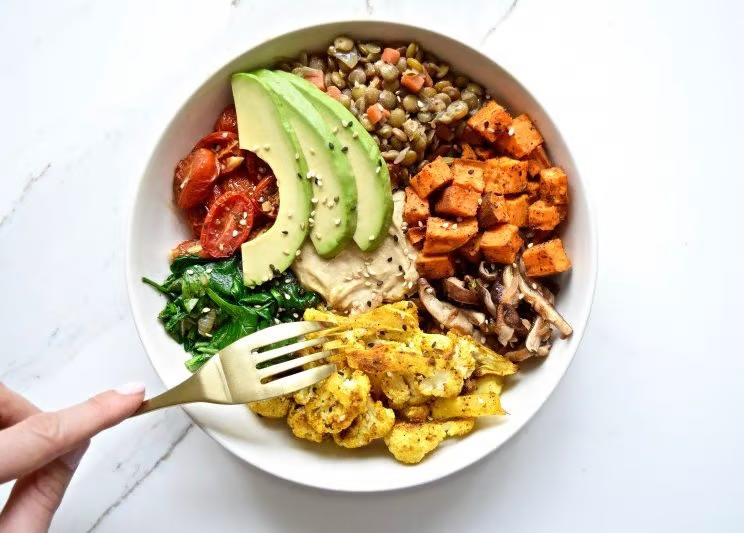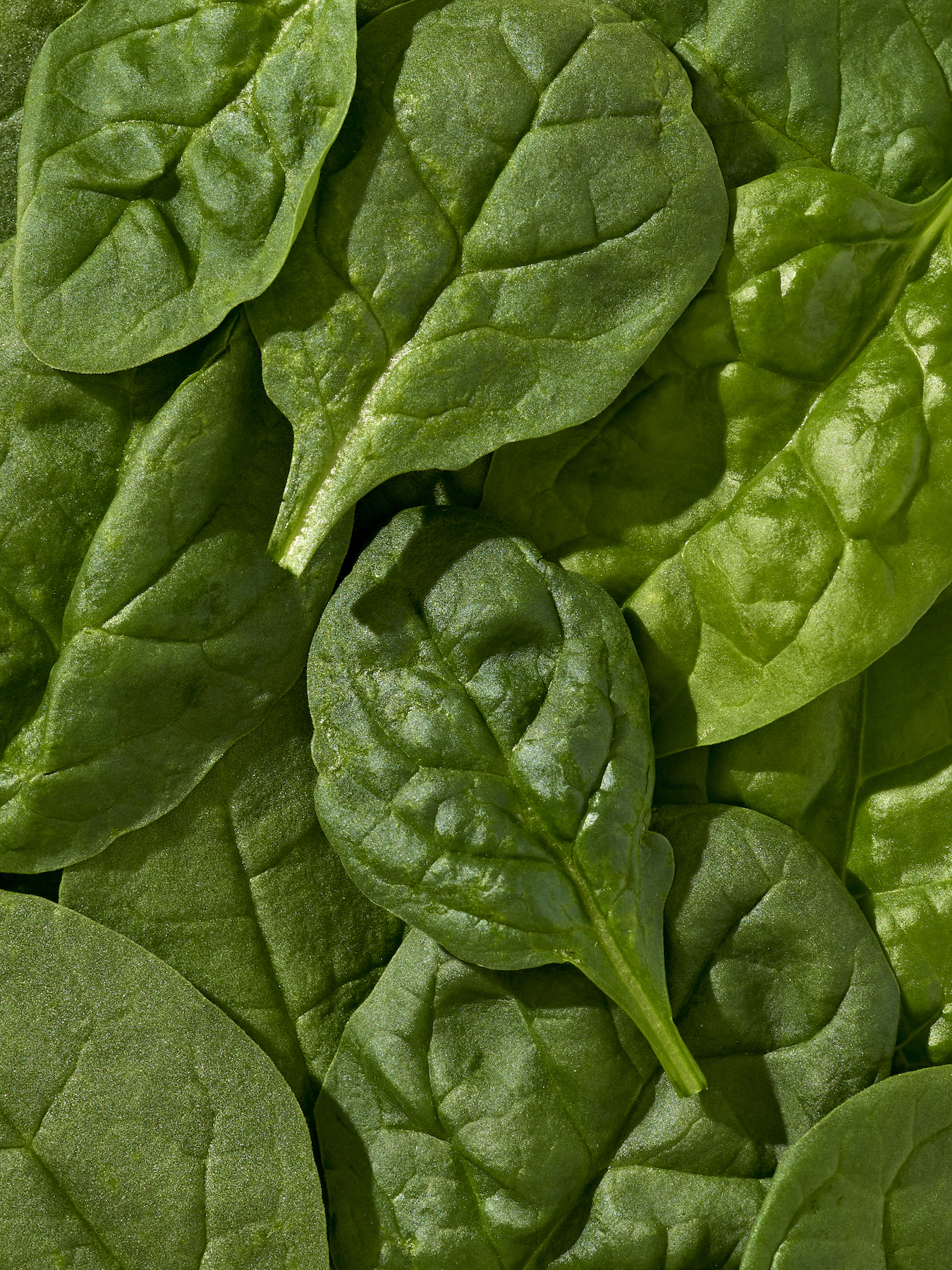What is the Keto Diet? + Recipes
The keto diet, short for ketogenic diet, has gained significant attention as a popular approach to weight loss and managing various health conditions. At its core, the keto diet involves drastically reducing carbohydrate intake and replacing it with fat, leading the body into a metabolic state known as ketosis. In this state, the body becomes incredibly efficient at burning fat for energy, and it also turns fat into ketones in the liver, which can supply energy to the brain. This shift from using carbohydrates to fat and ketone bodies as primary energy sources can lead to noticeable reductions in body weight and blood sugar levels
However, the keto diet is more than just a weight loss tool. Studies have suggested potential health benefits in various neurological conditions, including Alzheimer's disease and epilepsy, and it's been explored for its effects on heart disease, polycystic ovary syndrome, and more. This high-fat diet can change LDL cholesterol levels and may influence muscle mass. It's important to note that while the diet can have positive effects, it may also lead to adverse effects like keto flu, a condition marked by flu-like symptoms as the body adapts to a lower carbohydrate intake. Diabetic individuals, particularly those at risk of diabetic ketoacidosis, should exercise caution and consult their healthcare provider and a registered dietitian before starting the keto diet. The American Heart Association also advises care with diets high in fat, especially saturated fat, given the potential risks for cardiovascular disease.
This comprehensive guide will dive deep into the keto diet, outlining its potential health benefits and the science behind how it impacts conditions like heart disease and blood glucose regulation. We'll also provide practical advice on what foods to eat, what to avoid, and how to maintain a balanced approach to ensure you get the necessary nutrients while keeping your carbohydrate intake low. Plus, we'll showcase a variety of delicious keto-friendly recipes that incorporate healthy fats. Whether you're looking to lose weight, manage a health condition, or simply explore a new dietary approach, this guide will equip you with the knowledge and tools to embark on the keto journey safely and effectively.
Remember, if you have any health conditions, especially if you're diabetic, it's crucial to consult your healthcare provider and a registered dietitian to tailor the diet to your specific needs and avoid any adverse effects.
We know life can get hectic, but sticking to your healthy lifestyle should be easy. That's why Hungryroot brings custom-selected, healthy groceries that magically turn into delicious recipes delivered right to your door. Our seamless process frees up valuable time and helps you embrace a healthy lifestyle effortlessly. Let us be your trusted partner on your journey to health — because you deserve to feel good, inside and out.
Start your health journey by taking our personalized quiz to get your recipe and grocery recommendations.
What are the benefits of the Keto Diet?
The keto diet offers a variety of potential health benefits. Here are some of the key advantages:
- Weight Loss: The keto diet helps reduce body weight by turning the body into a fat-burning machine. Lowering carbohydrate intake forces the body to use fat as its primary energy source, leading to more effective weight loss.
- Improved Blood Sugar Control: This diet can significantly lower blood glucose levels, particularly beneficial for individuals with diabetes. Reducing carbohydrate intake leads to less sugar in the bloodstream, resulting in better glycemic control.
- Enhanced Brain Function: Ketone bodies produced during ketosis can provide a steady source of energy to the brain, potentially improving cognitive functions.
- Increased Energy and Focus: Many people on the keto diet report higher energy levels and sharper mental focus. This is attributed to the steady energy supply from fats, avoiding the spikes and crashes associated with high-carb diets.
- Reduction in Triglycerides: High triglyceride levels are a risk factor for heart disease, and the keto diet has been shown to reduce these levels. This is due to the decreased carbohydrate intake, which can lower triglycerides in the bloodstream.
- Lowered LDL Cholesterol: Although a high-fat diet, keto can decrease levels of LDL (bad) cholesterol, which is associated with cardiovascular risk. This is often due to the specific types of healthy fats encouraged on the diet, like medium-chain triglycerides.
- Improved Insulin Sensitivity: The diet can enhance insulin sensitivity, which is crucial for metabolic health and diabetes prevention. Reduced carbohydrate consumption helps to stabilize insulin levels and improve metabolic function.
Each of these benefits highlights how the keto diet can contribute to overall health and well-being, but it's important to approach it with a well-planned and balanced diet, especially for individuals with specific health conditions.
What can you eat on the Keto diet?
The keto diet focuses on high-fat, low-carb foods that fuel the body while maintaining ketosis, a state where the body efficiently burns fat for energy. Here's a list of foods you can enjoy on the keto diet:
- Fatty Fish: Options like salmon, trout, and mackerel are high in omega-3 fatty acids, which are beneficial for heart health. These fish are also a great source of high-quality protein, making them a staple in the keto diet.
- Low-Carb Vegetables: Non-starchy vegetables like spinach, kale, broccoli, and cauliflower are low in calories and carbs but high in many nutrients, including vitamin C and several minerals. They can be used in a variety of dishes, from salads to stir-fries.
- Cheese: Most cheeses are low in carbohydrates and high in fat, making them ideal for the keto diet. They are also a good source of calcium and protein, with options like cheddar, mozzarella, and goat cheese being popular choices.
- Avocados: Rich in healthy fats, avocados are incredibly nutritious and contain a variety of important nutrients, including potassium and fiber. They can be eaten alone, made into guacamole, or used as a topping for other dishes.
- Meat and Poultry: These are considered staple foods on a keto diet as they contain no carbs and are rich in B vitamins and several minerals, including potassium, selenium, and zinc. Grass-fed meat is the healthiest choice, as it's higher in omega-3 fats and antioxidants.
- Eggs: One of the most versatile foods on the keto diet, eggs are high in protein and nutrients but low in carbs. They can be prepared in various ways, from boiled to scrambled, making them a convenient keto-friendly option.
- Nuts and Seeds: A great source of fiber, nuts, and seeds can help you feel full and satisfied. Almonds, walnuts, flaxseeds, and chia seeds are all excellent choices for the keto diet.
- Healthy Oils: Particularly extra virgin olive oil, coconut oil, and avocado oil are high in healthy fats, ideal for a keto diet. They can be used in cooking or as dressings for salads.
This list is incomplete but provides a good starting point for foods to include in a keto-friendly diet. It's important to focus on whole, single-ingredient foods and avoid or minimize processed foods and unhealthy fats.
What should you avoid on the Keto diet?
On the keto diet, it's crucial to avoid foods that are high in carbohydrates, as they can disrupt the state of ketosis. Here’s a list of foods you should generally avoid or limit:
- Sugary Foods: This includes items like soda, fruit juice, smoothies, cake, ice cream, and candy. These foods are high in carbohydrates and can prevent your body from entering ketosis.
- Grains and Starches: Wheat-based products, rice, pasta, cereal, etc., should be avoided as they are high in carbs. These foods can significantly increase your carbohydrate intake and interfere with ketosis.
- Fruit: Most fruits are high in carbs and can halt ketosis; this includes bananas, apples, oranges, and most other fruits. Due to their lower carb content, berries like strawberries, raspberries, and blueberries can be eaten in moderation.
- Beans and Legumes: Peas, kidney beans, lentils, chickpeas, and others are high in carbohydrates. While they are healthy, their high carb content makes them unsuitable for the keto diet.
- Root Vegetables and Tubers: Potatoes, sweet potatoes, carrots, parsnips, and other root vegetables are high in carbohydrates. These should be limited or avoided in a keto diet.
- Low-Fat or Diet Products: These are often high in carbs and can be misleading because they appear healthy. They are usually highly processed and filled with unhealthy additives.
- Some Condiments and Sauces: Many contain sugar and unhealthy fat, which can increase carb intake. It's important to read labels and choose condiments with no added sugars.
- Unhealthy Fats: Limit your intake of processed vegetable oils, mayonnaise, and others, as they can contain unhealthy trans fats. Instead, focus on consuming healthy fats like olive oil and coconut oil.
- Alcohol: Many alcoholic beverages are high in carbs, which can throw you out of ketosis. If you drink, choose low-carb options like certain wines or pure spirits.
Avoiding these foods is key to maintaining a successful keto diet and achieving your health and wellness goals. It's essential to read food labels carefully and stay informed about the ingredients in your meals.
Our Favorite Keto Diet Recipes
- Turkey Meatloaf + Cauliflower Mash
- Juicy Chicken with Cauliflower Mash
- Herby Atlantic Salmon with Cauli Mash
- All-American Cheeseburger on Cauli Bun
- Kale Pesto Chicken Cauliflower Toast
- Zesty Bison + Avocado Lettuce Wrap
Successfully maintaining a keto diet over the long term hinges on establishing good dietary habits and making thoughtful substitutions for high-carb foods. Transitioning to a diet rich in healthy fats, moderate protein, and low in carbs can be made smoother by replacing starchy vegetables with nutrient-dense leafy greens high in amino acids and essential vitamins. Intermittent fasting can be a complementary practice to the keto diet, helping to regulate daily calorie intake and improve metabolic syndrome markers.
Monitoring your overall calorie intake is essential to ensure you're getting enough nutrients without overconsuming daily calories. While a keto diet can be beneficial in the short term for weight loss and reducing blood pressure, long-term adherence requires careful consideration, especially for individuals with pre-existing conditions like kidney disease or a tendency towards kidney stones. Regular health check-ups and consultations with healthcare professionals can help you tailor the diet to your needs, ensuring you reap the benefits of keto while minimizing potential risks. A successful keto journey is more than just cutting carbs; it's about making holistic and sustainable changes to your eating habits for lasting health and wellness.
Do you find yourself constantly on the go but still want to indulge in healthy foods? The expert chefs at Hungryroot have crafted various delicious recipes, including Keto diet recipes and groceries delivered straight to your doorstep.
Whether juggling work, family, or other commitments, Hungryroot helps you enjoy mouthwatering foods without compromising your health goals. Get started today by taking our personalized quiz and start your health journey right from day one!
Recommended Reading




